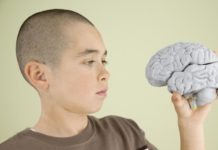Antipsychotic Medications Are Causing Obsessive Compulsive Disorders
Common second-generation antipsychotic medications are causing symptoms of obsessive-compulsive disorder to emerge in many people who previously only had schizophrenia symptoms, according to a...
Abolishing Forced Treatment in Psychiatry is an Ethical Imperative
Forced treatment in psychiatry cannot be defended, neither on ethical, legal or scientific grounds. It has never been shown that forced treatment does more good than harm, and it is highly likely that the opposite is true. We need to abolish our laws about this, in accordance with the United Nations Convention on the Rights of Persons with Disabilities, which virtually all countries have ratified.
A Tale of Two Studies
With increasing evidence that psychiatric drugs do more harm than good over the long term, the field of psychiatry often seems focused on sifting through the mounds of research data it has collected, eager to at last sit up and cry, here’s a shiny speck of gold! Our drugs do work! One recently published study on withdrawal of antipsychotics tells of long-term benefits. A second tells of long-term harm. Which one is convincing?
Did You Ever Stop Taking Antipsychotics? – World Survey on Withdrawal
Antipsychotics are big business, professionals are often at a loss as to how to help people going through disturbing experiences, the voices of patients are crowded out of the equation — there are many reasons for the lack of real education and informed consent around antipsychotics. To address this gap in knowledge, we launched a world study on antipsychotic medication withdrawal.
Children with ‘ADHD’ Commonly Prescribed Antipsychotics
Despite little evidence for benefit, and substantial risk of harm, antipsychotics are commonly prescribed to children diagnosed with ADHD
Withdrawal Symptoms Routinely Confound Findings of Psychiatric Drug Studies
Researchers examine how rapid discontinuation can mimic the relapse of mental health symptoms and confound psychiatric drug studies.
Psychiatry Ignores an Elephant in the Room
Large cohort studies of people with a first-episode psychosis provide a unique opportunity for finding out why so many young people with schizophrenia spectrum disorders die at a young age. However, it seems that those psychiatrists who have access to the mortality data generally do not want the facts to come out.
Mental Health Professionals and Patients Often Disagree on Causes of Symptoms
A new study finds that clinicians’ disregard for mental health patients’ insight into their own condition may be detrimental to treatment.
Researchers Warn of “Brain Atrophy” in Children Prescribed Antipsychotics
Researchers discuss the evidence that antipsychotic medications may cause brain atrophy in children, whose brains are still developing.
The Evidence-Based Mind of Psychiatry on Display
The writings of Pies and his colleagues, I believe, provide a compelling case study of cognitive dissonance. Cognitive dissonance arises when people are presented with information that creates conflicted psychological states, challenging some belief they hold dear, and people typically resolve dissonant states by sifting through information in ways that protect their self-esteem and their financial interests. It is easy to see that process operating here.
Antipsychotics Linked to Cognitive & Memory Impairments
Finnish reseachers report in Schizophrenia Research that antipsychotic use is associated with cognitive and memory impairments. The University of Oulu team studied forty people...
Safety Analysis Weighs Harms and Benefits of Antipsychotic Drugs
The researchers find that the drug effects for reducing psychosis are small and that treatment failure and severe side effects are common.
Do Antipsychotics Worsen Long-term Schizophrenia Outcomes? Martin Harrow Explores the Question.
Martin Harrow and Thomas Jobe have a new article coming out in Schizophrenia Bulletin that I wish would be read by everyone in our society with an interest in “mental health.” Harrow and Jobe, who conducted the best study of long-term schizophrenia outcomes that has ever been done, do not present new data in this article, but rather discuss the central question raised by their research: Does long-term treatment of schizophrenia with antipsychotic medications facilitate recovery? Or does it hinder it?
Harrow + Wunderink + Open Dialogue = An Evidence-based Mandate for A New Standard...
In the wake of the new study by Dutch researcher Lex Wunderink, it is time for psychiatry to do the right thing and acknowledge that, if it wants to do best by its patients, it must change its protocols for using antipsychotics. The current standard of care, which—in practice—involves continual use of antipsychotics for all patients diagnosed with a psychotic disorder, clearly reduces the opportunity for long-term functional recovery.
Randomized Controlled Trials of Psychiatric Drugs Tell of Harm Done
The most important data in an RCT is not whether the drug provides a statistically significant benefit over placebo. The most important data is the “number needed to treat” calculation (NNT). For the person considering taking an antidepressant or an antipsychotic, the NNT data provides the “math” needed to weigh the potential benefit of taking the drug against the potential harm of doing so.
Epilepsy Drugs Can Induce Psychosis in Some Patients, Study Finds
In this month’s issue of the journal Brain a new study investigates whether the drugs prescribed to control seizures can increase the risk of...
German Psychologists Declare “the Drugs Don’t Work”
Jürgen Margraf and Silvia Schneider, both well-known psychologists at the University of Bochum in Germany, claim that psychotropic drugs are no solution to mental...
Life Sentence: Life Behind the Bars of the Mental Health System
The minute you sit down in the chair in a mental health professional's office, you’re no longer seen as a person. The mental health system is incapable of seeing past the solid wall of your current label. Their only cure is drugs. "First Do No Harm" are powerful words. It’s unfortunate they don’t apply to psychiatry.
Scientists Clarify Risks of Augmenting with Antipsychotic Medications for Depression
The researchers found that while antipsychotic drugs may be slightly more effective than alternative antidepressants, they come with a much higher side effect burden.
On Pharma, Corruption, and Psychiatric Drugs
"My studies in this area lead me to a very uncomfortable conclusion: Our citizens would be far better off if we removed all the psychotropic drugs from the market, as doctors are unable to handle them. It is inescapable that their availability creates more harm than good."
- Peter Gøtzsche, MD; Co-founder of the Cochrane Collaboration
21 Dead in Japan From New Johnson & Johnson Antipsychotic
The death toll among Japanese citizens who have taken Johnson & Johnson's subsidiary Janssen's schizophrenia drug Xeplion has climbed to 21, from 17 on...
Consumer Reports: Antipsychotics “Last Resort” for Anxiety, ADHD, Depression, Insomnia, and PTSD
Consumer Reports affirms that, though the use of antipsychotic drugs to treat conditions not approved by the Food and Drug Administration has increased significantly in the...
Study Finds Improved Functioning for ‘Schizophrenia’ Without Antipsychotics
Long-term treatment with antipsychotic drugs is currently considered the standard treatment for patients diagnosed with ‘schizophrenia.’ A new study challenges this practice, however. The...
Towards a Ban on Psychiatrically Diagnosing and Drugging Children
Instead of hope and enthusiasm for their futures, too many children now grow up believing they are inherently defective, and controlled by bad genes and biochemical imbalances. They are shackled by the idea that they have ADHD and then subdued by the drugs that inevitably go along with the diagnosis. Unless something intervenes, many of them will go on to pass their days on Earth in a drug-impaired, demoralized state.
Robert Whitaker Refutes Jeffrey Lieberman; But Is Psychiatry Reformable?
When the neuroleptics-are-necessary-to-treat-schizophrenia myth falls, psychiatry is finished. And that is why the Goff et al paper was produced: a desperate attempt to maintain its position by a profession that is truly on the ropes. For psychiatry this is a death-struggle.
























